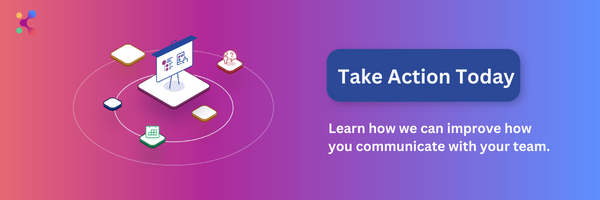
Why Frontline Managers Are Your Most Valuable Asset
According to businessdictionary.com, the frontline manager is, “the first or second managers directly responsible for production of goods and services, and supervision of clerical staff and shop floor employees.” Frontline managers are often considered responsible for the day-to-day operations and critical processes to run a store location. These managers often lead and organize the rest of the onsite staff.
Despite how essential frontline managers are to the success of retail and hospitality businesses, they are not always considered during strategic planning. However, frontline managers are one of your most valuable assets because they impact nearly every aspect of a nondesk business.
Frontline Managers play a key role in:
- The customer experience: Your frontline managers have a direct impact on how the customer perceives your brand, because they are designated with ensuring a consistent, high-quality experience in-store.
- The employee experience: According to the Harvard Business Review, frontline managers directly supervise around 80% of the total workforce. A great manager can deeply influence how other employees feel through their management skills, which in turn impacts productivity and retention.
- Ongoing operations and logistics: Frontline managers are assigned important daily tasks, from inventory and scheduling to ensuring compliance. Without these managers, ongoing operations and logistics would quickly fall apart onsite.
- Connecting the frontline with corporate headquarters: These managers are the bridge between frontline employees and corporate. To learn how frontline teams work and collaborate, leadership must tap managers for insight. Manager feedback should inform employee engagement strategies as well as help improve onsite processes.
How to Empower Frontline Managers
When surveying businesses to find if frontline managers are given the tools to succeed, HBR found only 12% of respondents said their organizations currently invest sufficiently in the development of frontline managers.
That said, frontline managers set the tone for their workplace and deeply impact the bottom line of any business. The organizations that invest in and empower their frontline workers are much more likely to succeed.
Listen and Learn from Your Managers
First and foremost, leadership must solicit feedback from these managers and learn what their daily schedules look like. By creating a dialogue, leadership learns what’s working and what can be improved upon. Leaders can also identify the most successful performers and replicate patterns of success.
Consider regular in-person check-ins to connect directly with leaders. Offer anonymous surveys as another way for managers to give feedback without fear of repercussion. By offering multiple avenues to contribute feedback, leadership can build trust with managers and create stronger relationships. Not only that, but leadership gets real-time information about what’s going on in the business.
Offer Opportunities for Ongoing Learning
Ongoing training programs are valuable for all nondesk employees, but can be especially useful for deepening essential skills for frontline managers. Not only can training help improve productivity, but ongoing learning for employees has shown to improve engagement and retention.
When soliciting feedback, considering asking what frontline managers would be interested in learning about or if they have preferred methods of learning. Offer different formats, from in-person training to online programming. You may also want to embed ongoing learning into professional pathing for frontline managers to signal your commitment to building up employees’ skillsets.
Consider introducing the following content types to your frontline management learning programs:
- Lunch & learns
- Online classes
- Product tutorials
- Virtual conferences
- Skills assessments
- Mentoring
- Employee knowledge sharing
Konverse offers an array of ongoing training features. Learn more.
Provide Managers with the Right Technology
Frontline Managers are tasked with ensuring onsite operations run smoothly. Historically, nondesk industries like hospitality and retail have been slow to adopt technology specifically to support communications and task management. However, because managers have so much on their plate, a platform that allows them full visibility into the workings of the business would be a game-changer.
Consider the following ways to use technology to help frontline managers execute their roles.
- Manage checklists and tasks with digital task management: Managers should use a tool to assign and track tasks across their frontline teams to ensure daily work is executed.
- Use data dashboards for real-time decision-making: With the right tech ecosystem, managers can access key information, from point-of-sale data to inventory numbers, to make real-time decisions.
- Use chat to communicate with teams across locations: Managers should use a chat software to connect with employees and other managers to better collaborate.
- Recruit and manage prospects with an events tool: Use an events calendar and knowledge management system to track prospects and book interviews.
Investing in Your Frontline Managers
Frontline managers are an invaluable asset to your business and should be treated as such. Provide managers with the opportunities to give feedback, build skills, and better execute their roles with technology. The managers that feel valued will in turn feel invested in the organization, leading to stronger management and onsite productivity.


